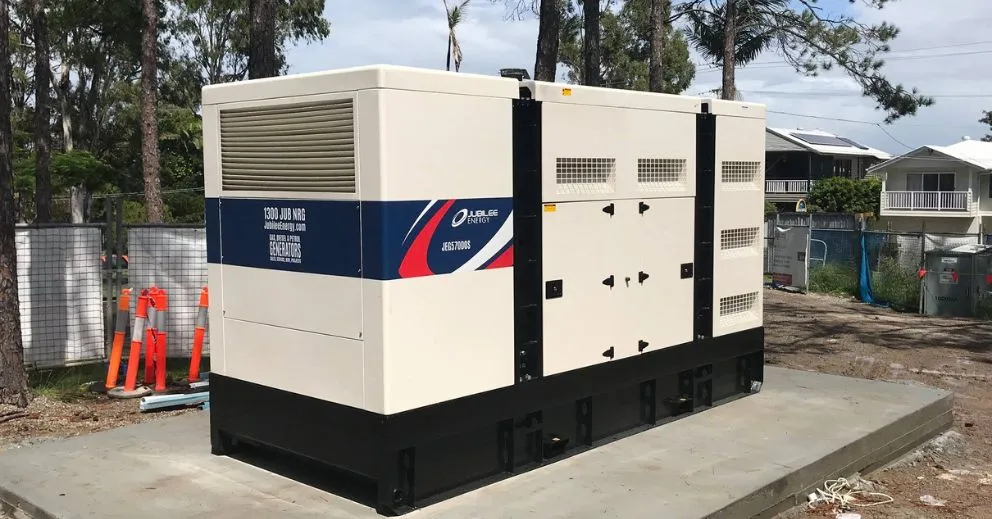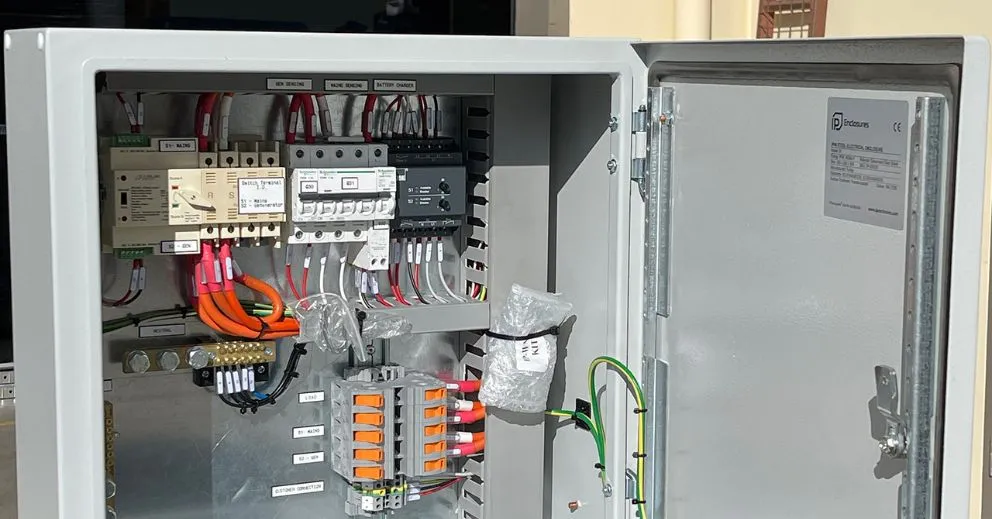Generators are essential for keeping homes, businesses, and worksites powered during blackouts, storms, or off-grid operations.
But have you ever considered how the weather might affect how your generator performs? From extreme heat to heavy rain, different conditions can impact efficiency, safety, and reliability.
Summary: Weather conditions such as high temperatures, humidity, cold snaps, rain, and dust storms can affect how well your generator operates. These factors influence fuel efficiency, electrical output, and even the lifespan of your equipment. Understanding how to protect your generator against various weather challenges helps ensure consistent, reliable performance when you need it most.
High Temperatures and Heatwaves
In Australia, summer heatwaves are common and they can push your generator to its limits.
How it affects performance:
- Excessive heat can cause overheating, especially if the generator lacks ventilation.
- Heat may reduce fuel efficiency and output.
- Oil and coolant can degrade faster in extreme heat.
Prevention tips:
- Ensure your generator is installed in a shaded, well-ventilated area.
- Check coolant and oil levels more frequently in summer.
- Schedule more regular servicing during hot months.
Cold Weather and Frost
While extreme cold is less common in many parts of Australia, it still poses issues, especially in alpine or rural areas.
How it affects performance:
- Battery capacity may drop, making it harder to start.
- Thickened oil can reduce lubrication.
- Condensation in fuel tanks may cause water contamination.
Prevention tips:
- Use winter-grade oil where applicable.
- Store portable generators indoors or in insulated sheds.
- Run the generator occasionally to keep components lubricated.
Heavy Rain and Flooding
Generators and water don’t mix; exposure to rain or floodwaters can damage the unit and create serious safety hazards.
How it affects performance:
- Risk of electrical short circuits.
- Corrosion of internal components.
- Risk of electrocution or fire if used in wet conditions.
Prevention tips:
- Install generators on raised, waterproof platforms.
- Use waterproof covers for portable units.
- Never operate a generator in standing water or during heavy rainfall without proper shelter.
Humidity and Coastal Conditions
In humid or coastal regions, moisture in the air can gradually damage generator components.
How it affects performance:
- Accelerates rust and corrosion.
- Moisture may cause issues with wiring and ignition.
- Damp air may affect air filters and airflow.
Prevention tips:
- Store the generator in a dry, well-ventilated enclosure.
- Use anti-corrosion spray on metal surfaces.
- Regularly inspect and replace air filters.
Dust and Windstorms
Generators used on construction sites or in dry, windy environments are exposed to dust and debris, which can clog internal parts.
How it affects performance:
- Dust can clog filters and reduce airflow.
- Dirt in fuel systems can lead to blockages and reduced performance.
- Moving parts wear out faster when exposed to fine debris.
Prevention tips:
- Clean and inspect air filters often.
- Keep your generator in an enclosed but ventilated space.
- Wipe down and inspect exposed parts after dust storms.
Extreme Weather Requires Preventive Maintenance
Weather-proofing your generator isn’t a one-time task. Regular servicing ensures your generator is always ready—no matter what the skies are doing. Keeping an eye on weather forecasts and adjusting your maintenance schedule accordingly can make a huge difference.
Stay Prepared in All Conditions with Jubilee Energy
Don’t wait for extreme weather to test your backup power system. At Jubilee Energy, we help homeowners, businesses, and tradies protect and maintain their generators year-round.
Get in touch with our team today for expert servicing, advice, and generator solutions tailored to your environment.
Key Takeaways
- Hot weather can reduce efficiency and speed up wear.
- Cold temperatures may affect starting and lubrication.
- Rain and flooding pose serious safety and performance risks.
- Humidity and dust can damage internal components over time.
- Routine maintenance is essential for weather protection.
FAQ: Generator Performance and Weather
Can I run my generator in the rain?
Only if it's covered by a weatherproof enclosure. Never expose it directly to rain or operate it in flooded areas.
Does humidity damage generators?
Yes. High humidity can lead to corrosion, electrical faults, and clogged air filters over time.
How do I protect my generator in extreme heat?
Ensure proper ventilation, use recommended oil and coolant, and avoid placing the generator in direct sunlight.
Should I cover my generator when not in use?
Yes, especially if it’s stored outdoors. Use a breathable cover that repels moisture but allows ventilation.
More insights from us
Discover the latest in power generation technology.





